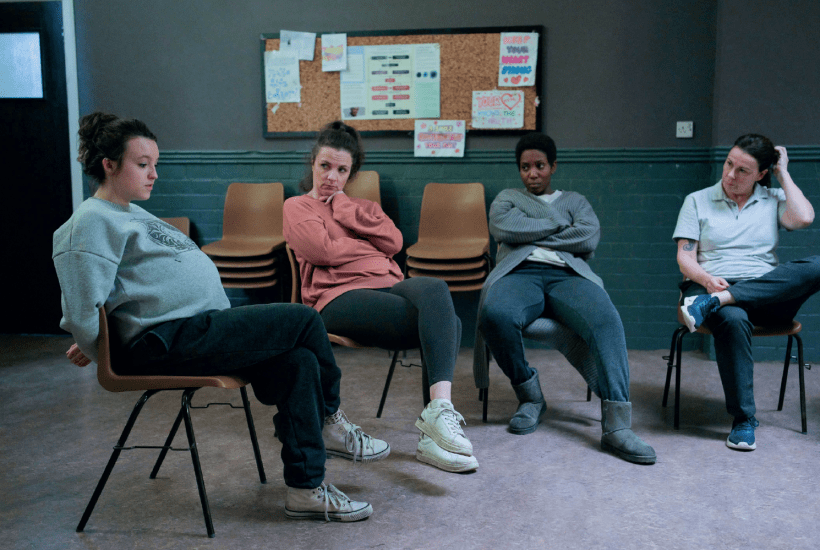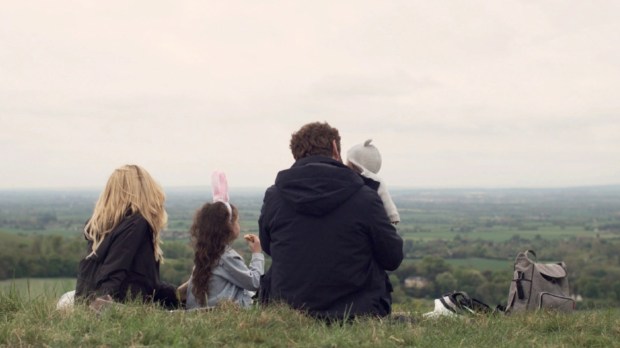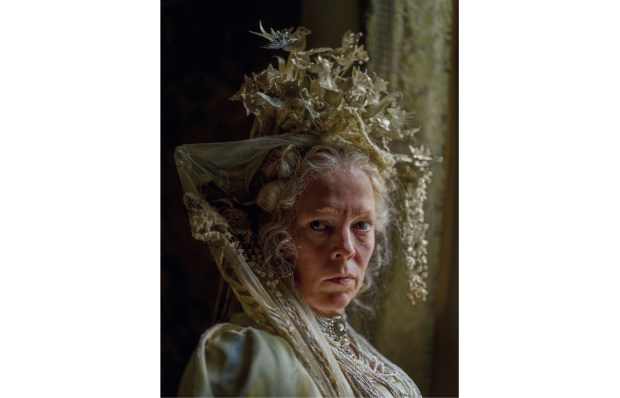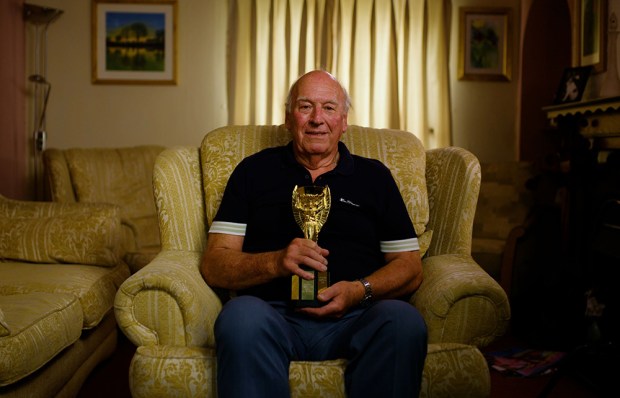‘Only with women’ is a phrase used by more cynical TV types for a show that takes something that’s been done before with men, but by changing the gender of the characters can pose as ground-breaking. It sprang to mind this week when both of BBC1’s big new dramas unblushingly took the only-with-women approach; the problem for the cynics being that the programmes themselves are rather good.
Or, in the case of Time, overwhelmingly so. Jimmy McGovern’s original 2021 series – a heart-wrenchingly effective portrait of life in a male prison – deservedly won a Bafta. Now he’s back to give us a heart-wrenchingly effective portrait of life in a female one.
Sunday’s episode began with a standard chaotic-family-breakfast scene, as Orla (Jodie Whittaker) buttered toast like a good ’un and made sure that her children had their PE kits. But she was next shown in a police van going to HMP Carlingford, where she’d been sentenced for six months for ‘fiddling the lecky’.
From what we see here, the set-up in women’s prisons is markedly less brutal than in men’s, with 24-hour access to a kitchen and TV lounge. The same, however, can’t be said of McGovern’s writing. Certainly, any viewers wondering if he might go a little gentler here – the dramatic equivalent of bowling underarm to the ladies – didn’t have to wonder for long.
Because she hadn’t expected that her court appearance would lead to jail, Orla didn’t have the sanitary products that she soon vividly needed. Shorn of her phone and the numbers in it, she had little choice but to leave her children with her alcoholic mother: a choice that duly ended with them being taken into care.
Meanwhile, she met her two cell mates. Kelsey (Bella Ramsey), a heroin addict on remand, had taken the precaution of smuggling in her favourite drug inside her vagina and lit up despite her medical having revealed that she’s pregnant. She also changed her mind about getting an abortion when she learned that judges are more lenient to expectant mothers. Abi (Tamara Lawrance), the middle-class wife of a surgeon, is doing life for killing her child in circumstances we don’t yet know. What we do know is that her crime gives the other inmates a rare chance to feel moral superiority, which they express through a mixture of daily humiliations and extreme violence.
Granted, there are some welcome moments of kindness. But not many. Instead, McGovern once again keeps us riveted with a horror that’s all the more horrifying for being so believable. At the same time, no matter how full-throated the drama becomes, there’s always a sense (by no means guaranteed in McGovern’s work) of a writer in utter control of his often angry material, as he serves up such old-school satisfactions as plot, pacing and character with unfussy aplomb.
After conducting my usual assiduous research for this column (Wikipedia doesn’t just open itself you know), I’ve discovered that Shetland is one of the BBC’s biggest worldwide hits. Now, after seven series, it’s lost its star: not, as you might think, the scenery, but DI Jimmy Perez (Douglas Henshall) who’s been brooding away almost as much as the Shetland skies since 2013.
Given that global firepower though, it’s not surprising that the BBC has opted to keep calm and carry on. As a result, it’s made the apparently controversial decision to import Ashley Jensen as new chief cop Ruth Calder, rather than promoting the fans’ choice, and Perez’s longstanding sidekick, Alison ‘Tosh’ McIntosh (Alison O’Donnell).
But first it had to get Ruth there from the Met – which is why the opening scenes saw her investigating a gangland murder that had been witnessed by a young woman called Ellen Quinn, now on the run from the killers. As luck would have it, Ellen fled back to her home in Shetland, where, as further luck would have it, Ruth grew up, making her the perfect officer to head north (and then more north).
Not that she’s doing much so far to charm the locals, treating even the sainted Tosh like a yokel and generally flaunting her fancy London ways. Ruth also looked as if she’d rather be anywhere else: a theory possibly confirmed by her repeatedly saying that she’d rather be anywhere else.
Luckily, the programme itself seems as content as ever to be doing what’s stood it in such good stead for so long. For one thing, that scenery really does play a blinder. For another, while the boundaries of crime drama remain firmly in place, the whole thing is nothing if not efficient. This is, in short, a drama that will neither blow your socks off nor ever let you down – which might well be the key to more TV successes than we critics, with our fancy London ways, sometimes acknowledge.
Got something to add? Join the discussion and comment below.
Get 10 issues for just $10
Subscribe to The Spectator Australia today for the next 10 magazine issues, plus full online access, for just $10.
You might disagree with half of it, but you’ll enjoy reading all of it. Try your first month for free, then just $2 a week for the remainder of your first year.














Comments
Don't miss out
Join the conversation with other Spectator Australia readers. Subscribe to leave a comment.
SUBSCRIBEAlready a subscriber? Log in